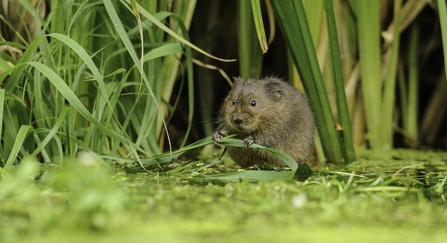A long road to recovery.
In 1997/98, the Environment Agency commissioned Suffolk Wildlife Trust to undertake a county-wide survey of water voles; the results of which revealed water vole populations were in serious trouble. Repeat surveys in the 2000s confirmed a steep decline, largely driven by the spread of non-native American mink; an aggressive predators that water voles have no natural defence against. In response, a coordinated mink control programme began, involving a network of environmental charities, volunteers, landowners and community groups across Suffolk.




